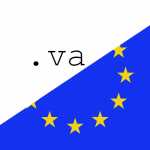 Fin de règne au Vatican: les fidèles désertent les églises, les vocations sacerdotales se raréfient, le scandale Vatileaks a secoué les consciences, la papamobile ne démarre plus, les piles des pacemakers sont à plat. Arrivé à bout, Benoît XVI prie les catholiques de l’excuser, démissionne, et devient à nouveau Joseph Ratzinger.
Fin de règne au Vatican: les fidèles désertent les églises, les vocations sacerdotales se raréfient, le scandale Vatileaks a secoué les consciences, la papamobile ne démarre plus, les piles des pacemakers sont à plat. Arrivé à bout, Benoît XVI prie les catholiques de l’excuser, démissionne, et devient à nouveau Joseph Ratzinger.
«Obsculta, o fili, præcepta magistri, et inclina aurem cordis tui et admonitionem pii patris libenter excipe et efficaciter conple, ut ad eum per oboedientiæ laborem redeas, a quo per inoboedientiæ desidiam recesseras.»
Benedictus de Nursia, Regula sancti Benedicti
«Ecoute, ô fils, les préceptes de ton maître, et prête l’oreille de ton cœur et reçois de plein gré l’admonestation d’un père pieux et accomplis-la efficacement, afin que tu puisses par le travail de l’obéissance retourner, à celui dont tu étais séparé par la paresse de la désobéissance.»
Benoît de Nursie, Règle de Saint Benoît
Le 11 février 2013, Benoît XVI annonçait sa renonciation à la ville et au monde. Service minimum jusqu’au 28 février 20 heures. Passée cette échéance, chacun pour soi et Dieu pour tous.
Urbi et orbi, et courbé et fourbu
[…]
Pour lire la suite veuillez faire un don.
© eurobole.com
